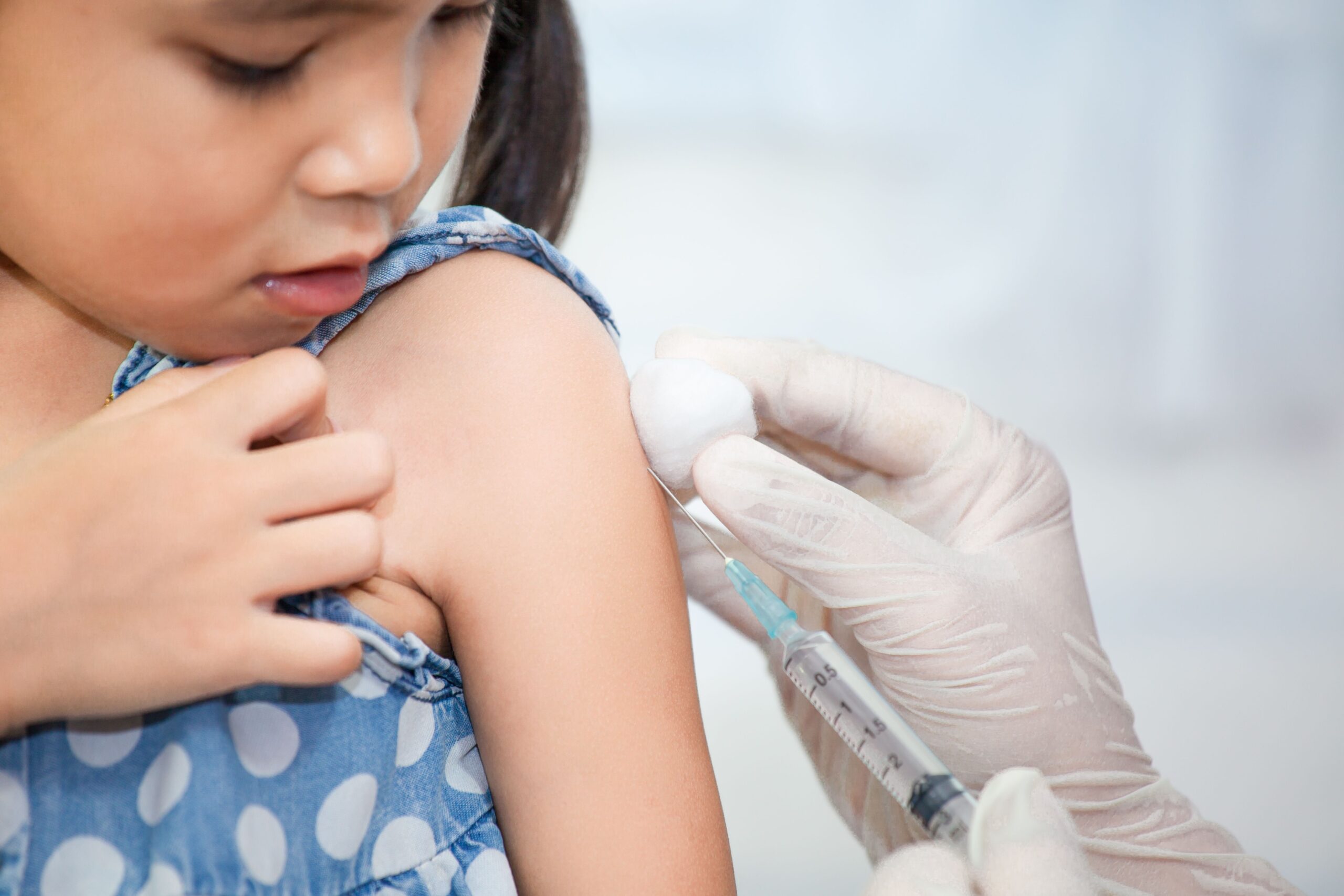Early childhood exposure to aluminum-absorbed vaccines does not increase their risk for autoimmune, atopic, allergic, or neurodevelopmental disorders, according to a recent Danish study of approximately 1.2 million children published in the Annals of Internal Medicine.
“Cumulative aluminum exposure from vaccination during the first 2 years of life was not associated with increased rates of any of the 50 disorders assessed,” corresponding author Niklas Worm Andersson, M.D., Ph.D., Department of Epidemiology Research, Statens Serum Institut, Denmark, writes in the study. “For groups of combined outcomes, adjusted hazard ratios per 1-mg increase in aluminum exposure were 0.98 for any autoimmune disorder, 0.99 for any atopic or allergic disorder, and 0.93 for any neurodevelopmental disorder.”
The Danish government childhood vaccination program offers an aluminum-adsorbed vaccine for diphtheria, tetanus, acellular pertussis, inactivated poliovirus and Hib, given across three doses in the first year of life.
Using the nationwide Medical Birth Registry, Andersson and his colleagues gathered vaccine data from 1,224,176 children born in Denmark between 1997 and 2018. Children’s individual vaccine information was gathered using the National Health Service Register, which provides information on the timing, number and types of vaccines given to each child.
In the study, only 1.2% of children received no aluminum-adjuvanted vaccines before age 2. The other cohort received vaccines with aluminum content doses ranging from 0.125 to 1.00 mg.
There were 5,174 autoimmune outcomes noted during the study period. The autoimmune diseases with the highest prevalence in the sample were 1,722 cases of Henoch-Schönlein purpura, which had an adjusted hazard ratio of 0.96; 809 cases of juvenile arthritis, which had an adjusted hazard ratio of 1.05; and 669 cases of Type 1 diabetes, which had an adjusted hazard ratio of 1.03. For comparison, there were 28,346 asthma outcomes, the highest number of cases of any of the 50 disorders studied.
“Although immunization with aluminum-adsorbed vaccines in children has been used worldwide for many decades and is generally considered safe, concerns about potential harms continue to resurface,” Andersson and the team said.
HHS Secretary Robert F. Kennedy Jr. is a vocal critic of vaccine ingredients, including aluminum and mercury. He has been quoted in the past saying that mercury in vaccines causes autism. Kennedy was the former chair of the Children’s Defense League, an anti-vaccination nonprofit.
“You wonder why a whole generation of children is allergic to stuff,” Kennedy said during a 2021 interview about vaccine safety. “It’s because we’re inducing allergies, pumping them full of aluminum.”
Last month, Kennedy also reportedly considered asking the Advisory Committee on Immunization Practices to reexamine vaccines containing aluminum.
Aluminum has been present in vaccines since the 1930s and is currently listed as an ingredient in 14 vaccines in the United States, including the Hepatitis A vaccine, Meningococcal B vaccine and the Human Papillomavirus (HPV) vaccine, according to a Children’s Hospital of Philadelphia fact sheet.
